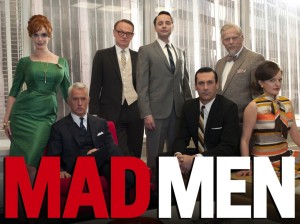Life has been getting busy, so to my readers, I appreciate your patience this summer as the posts have been fewer and far between. But now onto the meat and potatoes.
 Yesterday, as my wife Courtenay and I drove across country, our conversation turned to leadership issues in the church. (Before having our son, as two pastors we talked about church too much. Now church conversations are a welcome relief from poop conversations.)
Yesterday, as my wife Courtenay and I drove across country, our conversation turned to leadership issues in the church. (Before having our son, as two pastors we talked about church too much. Now church conversations are a welcome relief from poop conversations.)
We are both Millennials serving in a predominantly boomer and older church. Most of our colleagues are boomers and, definitely, our parishioners are boomers or older. This generational and experiential difference often makes for interesting dynamics.
I have had parishioners who remember riding a horse and buggy to church. I had a cell phone in high school. I have worked with colleagues who spent hours making bulletins on Gestetners. I have spent hours formatting bulletins on a MacBook and printing them on an all-in-one fax/copier/scanner. In each of my three parishes, there have been reams of paper files waiting for me in my new offices. I left memory sticks for my successors.
But it isn’t just technological differences. I have often found myself having tea with little old ladies or doing marriage counselling with people old enough to be my parents. I have been at odds with people who have 1950s expectations of pastors, like putting the church ahead of my family or trolling the countryside looking for people to visit. And I am pastor who has 2010s expectations of parishioners, like that we all know how to read emails or send texts and we all understand that society is not going to make Christians for us with school prayer, legislated Christian holidays and national endorsement of our religion.

Being a young pastor means that I regularly hear this statement from my boomer and older parishioners:
“Pastor, we need to get the young people back“
My cynical mind adds, “so they can give money and serve on council.”
But in my more empathetic moments, I realize that this statement carries a lot of grief. Most of the boomer, silent generation and G.I. generation folks experienced a church where they were surrounded by their peers from cradle onward. They not only want their kids and grandkids to be at church, but they want them to have friends their own age at church.
I am always surprised that while I am told that we need to get the young people back, I am rarely asked why I stayed as young person. In my experience of church, there have hardly ever been other people my age around. I have never really been a pastor to my peers, only to people more like my parents or grandparents.
I struggle with the idea of getting the young people back. What are we getting them back to?
I am an ordained pastor, trained to work in the church and at times it feels like an alien world, an anachronistic place that doesn’t always have room for me. And no, it isn’t the ancient liturgy or hymns that feel weird, it is the unspoken expectations of the 1950s that hang in the air.
I don’t think many church people realize that my generation has never prayed the Lord’s Prayer in school, we have always heard happy holidays in stores, christianity has never been the majority religion of our age group, the pastor has never dropped in on us for supper, shopping has always been allowed on Sundays, pastors have never preached on the radio, and church attendance has never been a social obligation for us
 When I talk to my friends about church, I can explain the ancient ritual, the dogma and doctrine. But I am at loss most times to explain the grieving of so many church goers who are longing for a world was a little more Mad Men and a little less Breaking Bad. We Millennials love both shows (and we would love to dress like Mad Men), but we live in a Breaking Bad world. The 1960s world of Mad Men exists only in fiction to us, it is not part of our experience as it is for older generations.
When I talk to my friends about church, I can explain the ancient ritual, the dogma and doctrine. But I am at loss most times to explain the grieving of so many church goers who are longing for a world was a little more Mad Men and a little less Breaking Bad. We Millennials love both shows (and we would love to dress like Mad Men), but we live in a Breaking Bad world. The 1960s world of Mad Men exists only in fiction to us, it is not part of our experience as it is for older generations.
I don’t have the solution for bridging the Boomer/Silent Generation church with the Millennial world of my peers, but I do have a suspicion.
It will need to start at the top.
Or rather with leadership.
It won’t work to grieve Millennials back into the church, which seems to be one predominant strategy. Nor will it work to lure us back with advertising and flashy worship or hip programs.
If the church wants Millennials to engage, the church needs to invite Millennials to lead. The reason that 1950s expectations still exist is because the church back then was built by the young G.I. generation. That generation had learned to lead through World War II, and went on to built nations together in the 50s. At my age, my grandfather was a pastor planting churches, serving on leadership committees and stepping to a leadership role in the greater church. His generation was permitted to shape the church as young people. The G.I. generation also held onto leadership for nearly 40 years, in society as well as the church. They held onto the US presidency from JFK to the first George Bush. Boomers were kept out of leadership, and so they were truly the first generation to begin leaving the church.
Now that Boomers have finally entered into leadership positions near the end of their careers, Gen Xers and Millennials have been left on the sidelines when it comes to shaping the world and shaping the church.
So how do we begin opening up leadership to include younger generations? Well, first off I know what involving young people doesn’t look like.
Often church people have a habit of mistaking leadership for being put on display. Leadership is not asking that young pastor to “speak” to the youth, or serve on a larger church youth or campus ministry committee, or preach a sermon at a convention. And leadership is not tokenism. Having a 20 or 30 something on the national governing board of the church is not leadership either.
Leadership is forming and shaping the way we do things. It is presenting a vision for a community. It is articulating our communal identity. Millennials cannot be tokens held up as examples of young people still in the church. Beaming with pride for the nice sermon by the young pastor at a church conference is the same as clapping for the 4 year old dressed like a sheep in the Christmas pageant.
 Inviting Millennials to engage will mean church people must be prepared to be shaped and formed by the young people they so desperately want back. It means allowing the dreams of the younger generation to become reality, instead of being something they have sit on until later in life.
Inviting Millennials to engage will mean church people must be prepared to be shaped and formed by the young people they so desperately want back. It means allowing the dreams of the younger generation to become reality, instead of being something they have sit on until later in life.
Getting Millennials to come (back) to church will mean allowing the church to belong to us and the 21st Century. The Church cannot continue grieving for the lost 1950s.
So next time I hear someone say to me,
“Pastor, we need the young people to come back to church”
I think I will respond,
“Are you ready to let the young people be in charge?”
We will see how this goes…
Is the church ready for Millennials in leadership? Will Millennials step up? Share in the comments, on the Facebook Page: The Millennial Pastor or on Twitter: @ParkerErik


Great post, very thought provoking! I am lead to say that there’s far too large of a gap between baby boomers and millennials, I think the disconnect is so drastic, neither side is attempting to converse. I don’t think is bad though, I think that the best possible thing for the state of the church is to “restart”. With the technological age of information, economic times/struggle, 50% divorce rate, baby boomers confusing moral ethic and obsession/condemnation with homosexuality, etc, etc, etc… We are just over it. This “moral majority” started way back when, but I think it died in the 90’s…
LikeLike
Thanks Andy! I certainly hope that a restart is necessary between two irreconcilable generations… however, especially with the culture wars in the US, it might be the only resort.
LikeLike
Reblogged this on cdjanmcmahon and commented:
This blog gives voice to what needs to be said about why Millennials are leaving the church. This post points to the need for Boomers to cultivate a new generation of leaders.
LikeLike
So I am the pastor of which you speak, and I want you to paint me a picture of what an invitation to authentic leadership looks like and sounds like.
LikeLike
Thanks for your question. I think for a lot of churches the question that the ask is “what do you want?” and try to answer it with flashy music, screens, programs, etc… However, I think the conversation around leadership needs to be “how do we follow Jesus and how do we serve the world?”
So ask Millennials how they think the church can follow Jesus and serve the world. Ask how Millennials answer those questions and the answers will be surprising.
LikeLike
Hi Erik,
When you said “I am always surprised that while I am told that we need to get the young people back, I am rarely asked why I stayed as young person.” in this article I was really struck by the truth of that statement. So I went and asked 10 other people that question who are in our generation. Here are their responses: http://lutheranfireescape.wordpress.com/2014/08/14/millenials/
thanks for the inspiration.
LikeLike
Thanks David! Great post, I will be sharing on Facebook and twitter!
LikeLike
“I am always surprised that while I am told that we need to get the young people back, I am rarely asked why I stayed as young person.”
I laughed when I read this, this is so true! I, as a millennial in church, educated in youth ministry, have been asked this once, and I had actually responded that participation was the key. And this answer was promptly rejected and replaced with “No, you had good, Godly parents raising you.” And this is true, I do have good, Godly parents raising me, but that’s not the whole story.
Millennials, I think, need to be actively involved. Church can’t be something that passively happens to them.
Thanks for the thoughts Rev. Parket, love the blog! I too, am a liturgy nerd 🙂
LikeLiked by 1 person